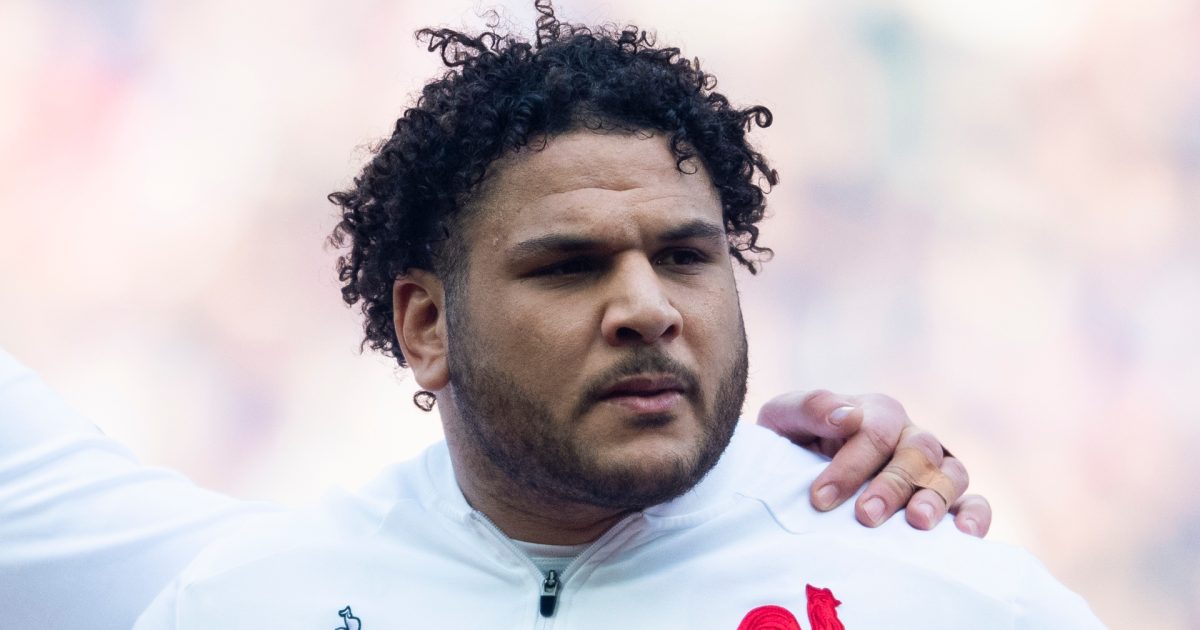Crisis for France as Haouas becomes their second banned tighthead

France tighthead Mohamed Haouas has had his 2023 Guinness Six Nations campaign ended by a ban following last Sunday’s red card in his team’s win over Scotland. The prop was red-carded just 11 minutes into the 32-21 round three victory at Stade de France and the four-game suspension now handed down at a disciplinary hearing leaves coach Fabien Galthie with quite a headache ahead of the upcoming round four match away to England.
Gatlthie has known a fortnight ago that he would be without the first-choice Uini Atonio for that March 11 match in London following his ban for a cited foul tackle in the round two loss for France against Ireland. That suspension resulted in the recall of Haouas, the Montpellier front-rower who hadn’t been capped by France since two appearances in last year’s Six Nations, getting picked ahead of replacement Sipili Falatea.
However, rather than alleviate the anxiety of the unavailability of Atonio, Haouas compounded the matter with his early red card – the second of his career in a Six Nations match versus the Scots. The four-game he has now received will rule him out of the remaining two matches that France have in this year’s championship, but he could return early to face Exeter in the Heineken Champions Cup as he has applied to do the World Rugby tackle school to shave the final game off his ban.
A statement read: “French prop Mohamed Haouas appeared before an independent judicial committee via video link having received a red card for an act of foul play in the Guinness Six Nations match between France and Scotland on Sunday.
“The independent judicial committee consisting of Brenda Heather-Latu (Samoa, chair), Ollie Kohn (Wales) and Stefan Terblanche (South Africa) heard the case, considering all the available evidence from match officials and submissions from the player and his representatives.
“The player admitted that he had committed an act of foul play warranting the issue of a red card prior to the hearing. After reviewing all the evidence, the committee applied World Rugby’s mandatory minimum mid-range entry point for foul play resulting in contact with the head. This resulted in a starting point of a six-week suspension.
“Having acknowledged that there were no aggravating factors and accepted mitigating factors including the player’s early acknowledgement that the incident warranted a red card; the lack of intent and premeditation and clearly expressed remorse, the committee reduced the six-week entry point by two weeks, resulting in a sanction of four weeks to be served as the follows:
- March 11: England vs France, Guinness Six Nations;
- March 18: France vs Wales, Guinness Six Nations;
- March 25: Perpignan vs Montpellier, Top 14;
- April 2: Exeter vs Montpellier, Champions Cup.
“The player applied to take part in the coaching intervention programme to substitute the final match of his sanction, which was granted by the committee. The programme is aimed at modifying specific techniques and technical issues that contributed to the foul play.”

































































Does the word Finn just mean prick?
I am quite staggered that the committee considers there was ‘a lack of intent’. This prop (who has previous form for violent conduct on the field, never mind his record off the field) came into the pile up (it wasn’t a ruck because too many players were not on their feet and bound on, ) and to my untutored eye (I have played, refereed and assessed refs for the best part of 65 years) he deliberately targetted the Scottish player at the base of the Scottish side of the pile up.
It is my considered opinion, given his ‘previous’, that a ban for the rest of the season would have been appropriate.